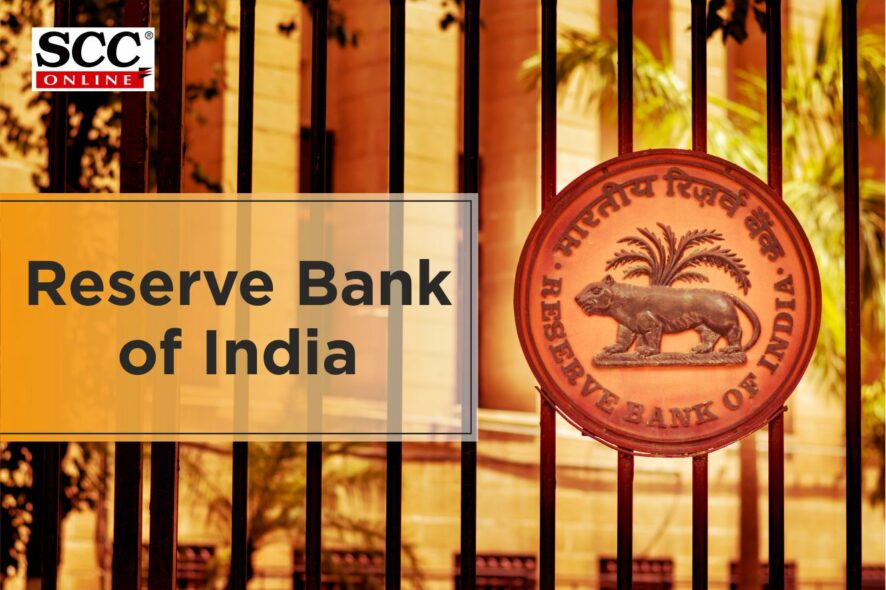On February 10, 2022, RBI has issues Master Direction – Reserve Bank of India (Credit Derivatives) Directions, 2022. These Directions shall apply to credit derivatives transactions undertaken in Over-the-Counter (OTC) markets and on recognised stock exchanges in India. It shall come into force on May 09, 2022.
Key points:
- Eligible participants: The following persons shall be eligible to participate in credit derivatives market
- Residents; and
- Non-residents, who are eligible to invest in corporate bonds and debentures under the Foreign Exchange Management (Debt Instruments) Regulations, 2019 dated October 17, 2019, as amended from time to time.
- Operational Directions for Credit Default Swaps in the OTC market:I. Market-makers shall ensure that all CDS transactions by retail users are undertaken for the purpose of hedging, i.e. retail users buying protection:
-
- shall not buy a CDS contract(s) with notional amount higher than the face value of the reference obligation held by them; and
- shall not buy a CDS contract with a tenor later than the maturity of the reference obligation held by them or the standard CDS maturity date immediately after the maturity of the reference obligation.
- shall have exposure to any of the eligible reference obligations;
To ensure compliance with the above, market-makers may call for any relevant information/documents from the retail user, who, in turn, shall be obliged to provide such information.
II. Retail users shall exit their CDS position within one month from the date they cease to have underlying exposure.
III. CDS contracts involving retail users shall be mandatorily physically settled.
- Standardisation
-
- Fixed Income Money Market and Derivatives Association of India (FIMMDA), in consultation with market participants and based on international best practices, shall devise standard master agreement/s for the Indian CDS market which shall, inter-alia, include credit event definitions and settlement procedures.
- FIMMDA shall, at the minimum, publish the following trading conventions for CDS contracts:
-
-
- Standard maturity and premium payment dates;
- Standard premiums;
- Upfront fee calculation methodology;
- Accrual payment for full first premium;
- Quoting conventions; and
- Lookback period for credit events.
-
- Reporting
-
- Market-makers shall report all OTC CDS transactions within 30 minutes of the transaction, to the trade repository of Clearing Corporation of India Ltd. (CCIL).
- Market-makers shall report all unwinding, novation, settlement transactions, and any credit, substitution or succession event to the trade repository of CCIL.
-
Credit Derivatives Determinations Committee: FIMMDA shall set up a Credit Derivatives Determinations Committee, consisting of market-makers and users in credit derivatives as voting members. FIMMDA shall ensure that users are adequately represented in the Committee. The Committee may also include central counter-parties as observer members and legal/audit/consultancy firms as consultative members.
- Directions for exchanges
-
- Exchanges may offer standardised single-name CDS contracts with guaranteed settlement.
- Exchanges shall obtain prior approval of the Reserve Bank for product design, changes in product design, eligible participants and other details of CDS contracts.
- Exchanges shall ensure that the participants on exchanges are made adequately aware of the risks associated with CDS.
- The reference entities and reference obligations for exchange-traded CDS shall be as specified under Paragraph 7 of these Directions.
- Participants who are retail users, as defined under Paragraph 5.2 of these Directions, shall undertake transactions in exchange-traded CDS only for hedging and such users: (a) shall have exposure to any of the eligible reference obligations; (b) shall not buy a CDS contract(s) for notional amount higher than the face value of the reference obligation held by them; and (c) shall not buy a CDS contract with a tenor later than the maturity of the reference obligation held by them or the standard CDS maturity date immediately after the maturity of the reference obligation.
- Participants shall not buy/sell protection on reference entities if there are regulatory restrictions on assuming similar exposures in the cash market or in violation of any other regulatory restriction, as may be applicable.
- The CDS contracts traded on exchanges can be cash settled or settled through auction. The procedure for cash settlement and auction settlement shall be determined by the Credit Derivatives Determinations Committee as specified under Paragraph 9 of these Directions.
- The determinations made by Credit Derivatives Determinations Committee shall be applicable to exchange-traded CDS contracts.
- Foreign Portfolio Investors (FPIs) may transact in exchange-traded CDS as protection sellers and/or protection buyers. Participation by FPIs shall be subject to the provisions of A.P. (DIR Series) Circular No. 23 dated February 10, 2022 on Transactions in Credit Default Swap (CDS) by Foreign Portfolio Investors – Operational Instructions. Exchanges shall report the gross notional amount of protection sold by FPIs to CCIL on a daily basis by the end of the day, or on an intra-day basis if required by the Reserve Bank.
- Exchanges shall report all CDS transactions to the trade repository authorised for the purpose by the Reserve Bank on a daily basis by the end of the day, in the form and manner prescribed by the Reserve Bank.
- Exchanges shall furnish any information relating to CDS transactions to the Reserve Bank or any other agency as may be specified by the Reserve Bank in the manner and format and within the time frame as may be specified by the Reserve Bank.



